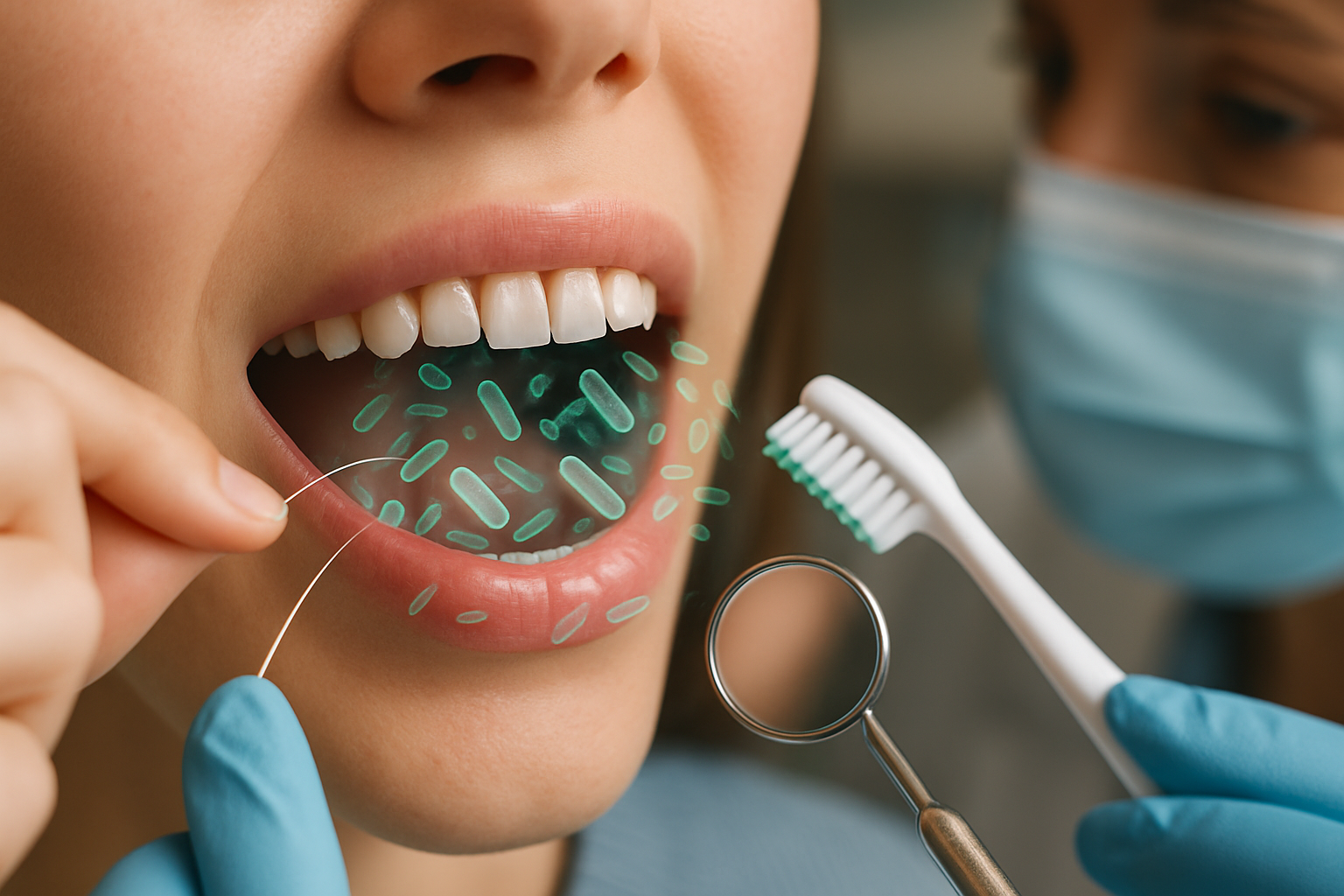How to Get Rid of Bad Breath Right Now
Bad breath can be embarrassing and affect your confidence in social situations. While many people reach for temporary fixes like mints or mouthwash, understanding the root causes of halitosis is essential for finding effective solutions. Addressing bad breath requires a comprehensive approach that targets both oral hygiene and internal bodily factors.

Bad breath, medically known as halitosis, affects millions of people worldwide and can significantly impact social interactions and self-confidence. While many people instinctively reach for quick fixes like mints, gum, or mouthwash when faced with bad breath, these solutions often provide only temporary relief. To truly eliminate bad breath, it’s necessary to understand that the problem often extends beyond the mouth. This article explores comprehensive approaches to tackle bad breath effectively, addressing both immediate solutions and long-term strategies for lasting freshness.
Understanding How Bad Breath Starts in Your Gut
Contrary to popular belief, bad breath doesn’t always originate in the mouth. Research shows that digestive issues can significantly contribute to halitosis. The gut-mouth connection works both ways: digestive problems can cause bad breath, and bad breath can sometimes indicate underlying digestive issues. When food isn’t properly digested, it can ferment in the gut, producing gases that travel up through the digestive system and escape through the mouth.
Specific digestive conditions linked to bad breath include acid reflux, where stomach acids rise into the esophagus, and H. pylori infections, which can cause both stomach ulcers and bad breath. Additionally, certain foods like garlic, onions, and spicy dishes enter the bloodstream during digestion and are eventually released through the lungs when you breathe, causing odor that brushing alone cannot eliminate.
Addressing Stomach Issues and Other Root Causes
Tackling bad breath effectively requires identifying and addressing its underlying causes. Stomach issues like acid reflux can be managed through dietary changes, including eating smaller meals, avoiding trigger foods, and not lying down immediately after eating. For some people, probiotics may help restore gut balance and reduce bad breath caused by digestive issues.
Poor oral hygiene remains a primary cause of bad breath. Bacteria that live in the mouth break down food particles, producing sulfur compounds that create unpleasant odors. Regular brushing, flossing, and tongue cleaning are essential for removing these bacteria and food particles.
Dry mouth (xerostomia) is another significant contributor to bad breath. Saliva naturally cleanses the mouth, and when production decreases—due to medications, certain health conditions, or simply sleeping—bacteria thrive, causing morning breath and persistent bad odor. Staying hydrated and using alcohol-free mouthwashes can help combat dry mouth.
Natural Remedies Combined with Scientific Approaches
Nature offers numerous solutions for bad breath that have been validated by scientific research. Green tea contains polyphenols that can reduce oral bacteria and sulfur compounds. Studies show that drinking green tea regularly may help maintain fresh breath throughout the day.
Herbal remedies like cloves, fennel seeds, and cinnamon have natural antimicrobial properties that can temporarily neutralize bad breath. Chewing on these spices after meals has been a traditional remedy in many cultures for centuries.
Apple cider vinegar, despite its strong smell, can help balance pH levels in the mouth and gut when diluted with water and consumed before meals. This may reduce bacterial growth that leads to bad breath. Probiotics, found in yogurt and fermented foods, introduce beneficial bacteria that can crowd out odor-causing bacteria in both the mouth and gut.
Why Traditional Mouthwash Isn’t a Complete Solution
While mouthwash provides immediate freshness, many commercial products contain alcohol that actually dries out the mouth, potentially worsening bad breath over time. Additionally, mouthwash only masks odors temporarily without addressing the underlying causes, whether they’re in the mouth or elsewhere in the body.
Standard mouthwashes often kill both good and bad bacteria, disrupting the natural oral microbiome. This can create an imbalance that may eventually lead to worse breath as harmful bacteria repopulate faster than beneficial ones.
For truly effective bad breath management, a comprehensive approach is necessary. This includes proper oral hygiene (brushing, flossing, and tongue cleaning), addressing dietary factors, staying hydrated, and potentially using alcohol-free, probiotic-containing oral care products that support a healthy oral microbiome rather than disrupting it.
Clinically-Backed Solutions for Long-Term Fresh Breath
Modern science has developed several evidence-based approaches to combat bad breath effectively. Zinc-containing products have been clinically shown to neutralize volatile sulfur compounds that cause bad breath odors. These can be found in specialized toothpastes and mouthwashes designed specifically for halitosis.
Chlorine dioxide formulations work differently from traditional mouthwashes by chemically neutralizing odor compounds rather than simply masking them. Studies have shown these products can provide longer-lasting fresh breath than conventional options.
Oil pulling, an ancient Ayurvedic practice involving swishing oil (typically coconut oil) in the mouth for 15-20 minutes, has gained scientific support. Research indicates it can reduce plaque, gingivitis, and the bacteria responsible for bad breath.
For persistent bad breath that doesn’t respond to self-care measures, professional treatment may be necessary. Dentists can identify and treat conditions like gum disease or tooth decay that contribute to halitosis, while medical doctors can address systemic issues like digestive problems or sinus infections that may be the root cause.
This article is for informational purposes only and should not be considered medical advice. Please consult a qualified healthcare professional for personalized guidance and treatment.




